 W
WGheorghe Apostol was a Romanian politician, deputy Prime Minister of Romania and a former leader of the Communist Party (PCR), noted for his rivalry with Nicolae Ceaușescu.
 W
WTeoctist was the Patriarch of the Romanian Orthodox Church from 1986 to 2007.
 W
WTudor Arghezi was a Romanian writer, best known for his unique contribution to poetry and children's literature. Born Ion N. Theodorescu in Bucharest, he explained that his pen name was related to Argesis, the Latin name for the Argeș River.
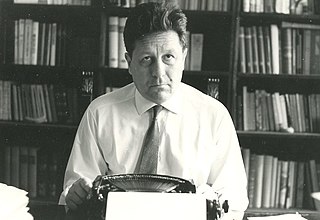 W
WEugen Barbu was a Romanian modern novelist, short story writer, journalist, and correspondent member of the Romanian Academy. The latter position was vehemently criticized by those who contended that he plagiarized in his novel Incognito and for the anti-Semitic campaigns he initiated in the newspapers Săptămâna and România Mare which he founded and led. He also founded, alongside his disciple Corneliu Vadim Tudor, the nationalist Greater Romania Party (PRM).
 W
WAlexandru Bârlădeanu was a Romanian Marxian economist and statesman who was prominent during the Communist regime until being sidelined in 1968. In his later years, following the collapse of the regime, he served as Senate President.
 W
WPetre Bejan was a Romanian engineer and politician.
 W
WRadu Beligan was a Romanian actor, director, and essayist, with an activity of over 70 years in theatre, film, television, and radio. On 15 December 2013, confirmed by Guinness World Records, the actor received the title of "The oldest active theatre actor" on the planet. He was elected honorary member of the Romanian Academy in 2004.
 W
WEmil Bobu was a Romanian Communist activist and politician, who served as Interior Minister from 1973 to 1975 and as Labor Minister from 1979 to 1981. He was an influential figure in the later years of the Communist regime until his downfall during the 1989 Revolution.
 W
WPetre Borilă was a Romanian communist politician who briefly served as Vice-Premier under the Communist regime. A member of the Romanian Communist Party (PCR) since his late teens, he was a political commissar in the Spanish Civil War and a Comintern cadre afterwards, spending World War II in exile in the Soviet Union. Borilă returned to Romania during the late 1940s, and rose to prominence under Communist rule, when he was a member of the PCR's Central Committee and Politburo.
 W
WDemostene Botez was a Romanian poet and prose writer.
 W
WMihail Gheorghiu Bujor was a Romanian lawyer, journalist and socialist militant. An important figure in the early Romanian labour movement, he embraced communism during World War I and organised Romanian armed detachments in Odessa in support of the October Revolution, hoping to foment a revolution in his native country. A political prisoner in Romania for much of the interwar period and during World War II, he held several minor political offices after the regime change in the late 1940s.
 W
WGeorge Călinescu was a Romanian literary critic, historian, novelist, academician and journalist, and a writer of classicist and humanist tendencies. He is currently considered one of the most important Romanian literary critics of all time, alongside Titu Maiorescu and Eugen Lovinescu, and is one of the outstanding figures of Romanian literature in the 20th century.
 W
WElena Ceaușescu was a Romanian communist politician who was the wife of Nicolae Ceaușescu, General Secretary of the Romanian Communist Party and leader of the Socialist Republic of Romania. She was also the Deputy Prime Minister of Romania.
 W
WNicolae Ceaușescu was a Romanian communist politician and dictator. He was the general secretary of the Romanian Communist Party from 1965 to 1989, and the second and last Communist leader of Romania. He was also the country's head of state from 1967, serving as President of the State Council and from 1974 concurrently as President of the Republic, until his overthrow and execution in the Romanian Revolution in December 1989, part of a series of anti-Communist and anti-Soviet uprisings in Eastern Europe that year.
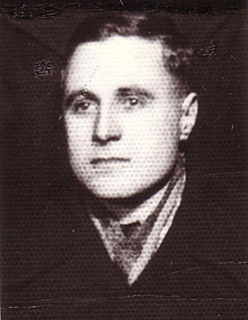 W
WDumitru Coliu was a Romanian communist activist and politician.
 W
WMiron Constantinescu was a Romanian communist politician, a leading member of the Romanian Communist Party, as well as a Marxist sociologist, historian, academic, and journalist. Initially close to Communist Romania's leader Gheorghe Gheorghiu-Dej, he became increasingly critical of the latter's Stalinist policies during the 1950s, and was sidelined together with Iosif Chișinevschi. Reinstated under Nicolae Ceauşescu, he became a member of the Romanian Academy.
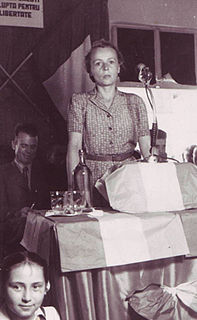 W
WConstanța Crăciun was a Romanian politician and educator.
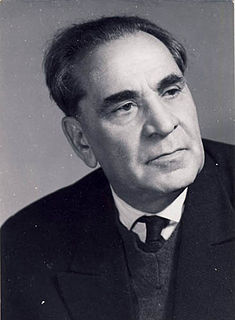 W
WConstantin Daicoviciu was a Romanian historian and archaeologist, professor at the University of Cluj, and titular member of the Romanian Academy.
 W
WConstantin Doncea was a Romanian communist activist and politician. A railway worker, he played an important part in the Grivița Strike of 1933. Subsequently, imprisoned, he escaped and ended up in Moscow. He then joined the International Brigades during the Spanish Civil War. After spending much of World War II in the Soviet Union, he returned to Romania, where he helped establish a Communist regime. Doncea held a series of posts under the new order, but in 1958 he was removed from the party after clashing with its leader Gheorghe Gheorghiu-Dej. In his later years, he was rehabilitated by the latter's successor, Nicolae Ceaușescu.
 W
WAlexandru Drăghici was a Romanian communist activist and politician. He was Interior Minister in 1952 and from 1957 to 1965, and State Security Minister from 1952 to 1957. In these capacities, he exercised control over the Securitate secret police during a period of active repression against other Communist Party members, anti-communist resistance members and ordinary citizens.
 W
WGala Galaction was a Romanian Orthodox clergyman and theologian, writer, journalist, left-wing activist, as well as a political figure of the People's Republic of Romania. Contrary to the spirit of the time, he was a promoter of tolerance towards the Jewish minority.
 W
WMihail Ghelmegeanu was a Romanian politician.
 W
WNicolae Giosan was a Romanian agricultural engineer and communist politician.
 W
WPetru Groza was an Austro-Hungarian-born Romanian politician, best known as the first Prime Minister of the Communist Party-dominated government under Soviet occupation during the early stages of the Communist regime in Romania, and later as the President of the Presidium of the Great National Assembly from 1952 until his death in 1958.
 W
WIon Iliescu is a Romanian politician and engineer who served as President of Romania from 1989 to 1996 and from 2000 until 2004. Between 1996 and 2000 and also from 2004 to 2008, year in which he retired, Iliescu was a senator for the Social Democratic Party (PSD), of which he is the founder and honorary president.
 W
WIustin Moisescu was Patriarch of the Romanian Orthodox Church from 1977 to 1986.
 W
WVasile Luca was an Austro-Hungarian-born Romanian and Soviet communist politician, a leading member of the Romanian Communist Party (PCR) from 1945 and until his imprisonment in the 1950s. Noted for his activities in the Ukrainian SSR in 1940–1941, he sided with Ana Pauker during World War II, and returned to Romania to serve as the minister of finance and one of the most recognizable leaders of the Communist regime. Luca's downfall, coming at the end of a conflict with Gheorghe Gheorghiu-Dej, signaled that of Pauker.
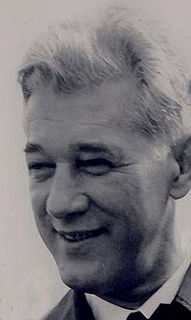 W
WCorneliu Mănescu was a Romanian diplomat born in Ploiești. He served as Minister of Foreign Affairs of Romania from 1961 to 1972 and as President of the United Nations General Assembly from 19 September 1967 to 23 September 1968.
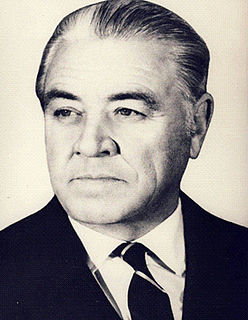 W
WIon Gheorghe Iosif Maurer was a Romanian communist politician and lawyer, and the 49th Prime Minister of Romania. He is the longest serving prime-minister in history of Romania.
 W
WVasile Milea was a Romanian politician and military general whowas Nicolae Ceaușescu's Minister of Defence during the Romanian Revolution of 1989 and was involved in the reprisal phase of the Revolution that caused the deaths of 162 people.
 W
WNicolae Militaru was a Romanian soldier and communist politician. Rising to the rank of general by the 1960s, his ties to the Soviet Union led dictator Nicolae Ceaușescu to question his loyalty and sideline Militaru in 1978. He re-emerged during the Romanian Revolution, when he was made Defense Minister, serving for nearly two months before street pressure forced his dismissal. Days after Ceaușescu’s execution, he was advanced to general of the army. His final public act came in 1996, when Militaru ran for President, barely registering any support.
 W
WPaul Niculescu-Mizil was a Romanian communist politician. Joining the Romanian Communist Party due to his background and intellectual aspirations, he was prominent in the agitprop department during Gheorghe Gheorghiu-Dej's rule. Under Nicolae Ceaușescu, he went from handling foreign affairs in the late 1960s to holding ministerial posts in the 1970s to a marginal position in the 1980s. After the regime's collapse in 1989, he spent time in prison before emerging as a vocal defender of the system he had served.
 W
WIon Niculi, Romanian communist politician, served as vice president of the Presidium of the Romanian People's Republic (1947-1948).
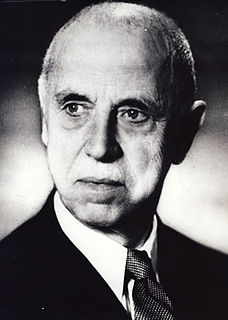 W
WConstantin Ion Parhon was a Romanian neuropsychiatrist, endocrinologist and politician. He was the first head of state of the Romanian People's Republic from 1947 to 1952. Parhon was President of the Physicians and Naturalists Society in Iași, director of medical institutes, professor, and a titular member of the Romanian Academy.
 W
WIon Pas was a Romanian novelist, translator and left-wing politician.
 W
WVasile Patilineț was a Romanian communist activist, politician and diplomat. A worker and native of the industrial Jiu Valley, he joined the Romanian Communist Party in 1945 and steadily rose through its ranks, entering the central committee a decade later. Subsequently, he became a close ally of Nicolae Ceaușescu, whose rise to power in 1965 he helped facilitate. A significant player in the early years of the latter's rule, he became steadily alarmed by the dictator's excesses and began plotting against him by the late 1970s. He was sent as ambassador to Turkey in 1980, and six years later, upon finishing his service at Ankara, was killed in a suspicious car accident.
 W
WLucrețiu Pătrășcanu was a Romanian communist politician and leading member of the Communist Party of Romania (PCR), also noted for his activities as a lawyer, sociologist and economist. For a while, he was a professor at the University of Bucharest. Pătrășcanu rose to a government position before the end of World War II and, after having disagreed with Stalinist tenets on several occasions, eventually came into conflict with the Romanian Communist government of Gheorghe Gheorghiu-Dej. He became a political prisoner and was ultimately executed. Fourteen years after Pătrășcanu's death, Romania's new communist leader, Nicolae Ceaușescu, endorsed his rehabilitation as part of a change in policy.
 W
WGheorghe Pintilie was a Soviet intelligence agent, Soviet citizen and naturalised Romanian communist activist of Ukrainian origin, and the first Director of the Securitate. As such, he was one of the main organizers of the repression in Socialist Republic of Romania, responsible for the arrest, deportation, and internment of around 400,000 people.
 W
WConstantin Pîrvulescu was a Romanian communist politician, one of the founders of the Romanian Communist Party (PCR), who, as time went on, became an active opponent of leader Nicolae Ceaușescu. Briefly expelled from the Party in 1960, he was re-admitted and elected to the Party Revision Committee in 1974.
 W
WMarin Preda was a Romanian novelist, post-war writer and director of Cartea Românească publishing house. His last novel, "Cel mai iubit dintre pământeni", published just a couple of months before his death, has been perceived as a very daring critique of the beginnings of communism in Romania. However, the novelist, who received the highest distinctions and was well regarded by party leaders, cannot be considered an actual opponent of the communist regime. An eyewitness stated that in 1970 Marin Preda had told Nicolae Ceaușescu in the context of a small reunion: "If you want to introduce socialist realism, I, Marin Preda, will commit suicide.” But the author had never publicly criticized socialist realism and never doubted the legitimacy of the communist regime. At the time of his death, Marin Preda was a member of the Great National Assembly.
 W
WMihai Dumitru Ralea was a Romanian social scientist, cultural journalist, and political figure. He debuted as an affiliate of Poporanism, the left-wing agrarian movement, which he infused with influences from corporatism and Marxism. A distinguished product of French academia, Ralea rejected traditionalism and welcomed cultural modernization, outlining the program for a secular and democratic "peasant state". His ideology blended into his scholarly work, with noted contributions to political sociology, the sociology of culture, and social and national psychology. He was a professor at the University of Iași and, from 1938, the University of Bucharest.
 W
WIosif Rangheț was an Austro-Hungarian-born Romanian communist activist and politician.
 W
WLeonte Răutu was a Bessarabian-born Romanian communist activist and propagandist. He was chief ideologist of the Romanian Communist Party during the rule of Gheorghe Gheorghiu-Dej, and one of his country's few high-ranking communists to have studied Marxism from the source. His adventurous youth, with two prison terms served for illegal political activity, culminated in his self-exile to the Soviet Union, where he spent the larger part of World War II. Specializing in agitprop and becoming friends with communist militant Ana Pauker, Răutu made his way back to Romania during the communization process of the late 1940s, and became a feared potentate of the Romanian communist regime. As head of the Communist Party's new Agitprop Section, he devised some of the most controversial cultural policies, and managed to survive Pauker's downfall in 1952.
 W
WRaluca Ripan was a Romanian chemist, and a titular member of the Romanian Academy. She wrote many treatises, especially in the field of analytical chemistry.
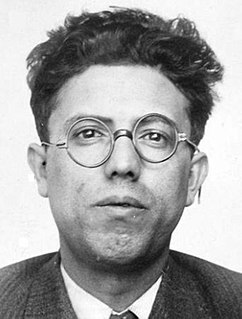 W
WMihail Roller was a Romanian communist activist, historian and propagandist, who held a rigid ideological control over Romanian historiography and culture in the early years of the communist regime. During his training in engineering, he rallied with the communist cells in Romania and abroad, joining the Romanian Communist Party while it was still an underground group. He collaborated with the Agitprop leaders Leonte Răutu and Iosif Chișinevschi, spent time in prison for his communist activity, and ultimately exiled himself to the Soviet Union, where he trained in Marxist historiography.
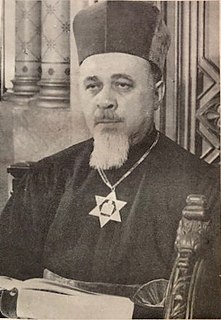 W
WMoses Rosen was Chief Rabbi of Romanian Jewry between 1948–1994 and president of the Federation of Jewish Communities of Romania between 1964–1994. He led the community through the entire Communist era in Romania and continued in that role after the restoration of democracy following the Romanian Revolution of 1989. In 1957, he became a deputy in the Romanian parliament, a position he held through the Communist regime, and after 1989, in the democratic parliament. In the 1980s, the Romanian authorities allowed him to receive Israeli nationality and he was elected president of the Council of the Jewish Diaspora Museum in Tel Aviv.
 W
WMihail Sadoveanu was a Romanian novelist, short story writer, journalist and political figure, who twice served as acting head of state for the communist republic. One of the most prolific Romanian-language writers, he is remembered mostly for his historical and adventure novels, as well as for his nature writing. An author whose career spanned five decades, Sadoveanu was an early associate of the traditionalist magazine Sămănătorul, before becoming known as a Realist writer and an adherent to the Poporanist current represented by Viața Românească journal. His books, critically acclaimed for their vision of age-old solitude and natural abundance, are generally set in the historical region of Moldavia, building on themes from Romania's medieval and early modern history. Among them are Neamul Șoimăreștilor, Frații Jderi and Zodia Cancerului. With Venea o moară pe Siret..., Baltagul and some other works of fiction, Sadoveanu extends his fresco to contemporary history and adapts his style to the psychological novel, Naturalism and Social realism.
 W
WLeontin Sălăjan was a Romanian communist military and political leader.
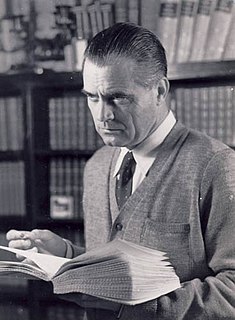 W
WZaharia Stancu was a Romanian prose writer, novelist, poet, and philosopher. He was also the director of the National Theatre Bucharest, the President of the Writers' Union of Romania, and a titular member of the Romanian Academy.
 W
WAndrás Sütő was an ethnic Hungarian journalist, writer, playwright and politician from Romania, one of the leading writers in the Hungarian language in the 20th century.
 W
WIoan Totu was a Romanian communist politician who served as the Vice Prime Minister of Romania from 1982 to 1985 and as Minister of Foreign Affairs from 1986 to 1989, during the rule of Nicolae Ceaușescu. He briefly served as President of the State Planning Committee in late 1989.
 W
WVirgil Trofin was a Romanian communist activist and politician, who served as minister under the Communist regime.
 W
WGheza or Géza Vida, also known as Grigore, was a Romanian–Hungarian sculptor, engraver, industrial worker and communist militant, one of the most renowned artists of Maramureș region. The descendant of ethnic Romanian and Slovak miners, he was born in the Hungarian segment of Austria-Hungary. Raised by his mother after his father's death in World War I, he received financial support from local benefactors, who cultivated his artistic skill, particularly as a woodcarver. A citizen of Romania after the union of 1918, he was forced to drop out of school by economic circumstances, and worked for years in various industries and businesses, while also discovering his passion for beekeeping and gardening. He was drawn into far-left politics during the Great Depression, when he came to be influenced by radical artists such as Alexandru Ziffer, Aurel Popp, Vasile Kazar and Iosif Klein, who also introduced him to avant-garde experimentation. Vida was co-opted into the Union of Communist Youth and subsequently the Communist Party, producing propaganda art for both; this activity led to his temporary arrest in 1932 and 1933. A labor organizer, he helped establish the Artists' Trade Union and its branch in Baia Mare.
 W
WIon Vincze was a Romanian communist politician and diplomat. An activist of the Romanian Communist Party (PCR), he was married to Constanța Crăciun, herself a prominent member of that party.
 W
WGheorghe Vlădescu-Răcoasa was a Romanian sociologist, journalist, left-wing politician and diplomat.